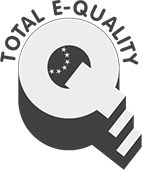The Baltic Sea is under considerable ecological pressure from nutrient input originating from land-based diffuse sources and nutrient losses caused by agricultural land use. Significance of the latter source is increasing especially as within the framework of HELCOM, all Contracting Parties have made considerable efforts to build and extend municipal wastewater treatment plants and have declared in a binding manner to introduce phosphate free laundry detergents during upcoming years. Nutrient inputs are responsible for causing eutrophication, toxic algae blooms, hypoxic and anoxic zones at the sea bottom and thus jeopardize the economic basis of both fishery and tourism. The environmental burden from nutrient loads is reduced if nutrients in agriculture are applied in a more efficient manner. Fertilizers are meant to optimize crop yields and not to end up in ground and surface waters. Comprehensive nutrient bookkeeping provides a basic prerequisite (tool) for efficient nutrient use in agricultural holdings; this applies as well for fertilizer planning ex ante as for nutrient balancing ex post. Therefore in October 2013 the environment ministers of the HELCOM countries decided during their conference in Copenhagen to introduce nutrient bookkeeping on farm level in all Contracting Parties by the end of 2018. A platform for these activities should be provided by the HELCOM Group on Sustainable Agricultural Practices, a subsidiary body of HELCOM. Germany is currently holding the chairmanship of this group. This report is a record of the event, produced by the Chamber. It contains all presentations and identifies relevant steps for upcoming years to be taken by and in the HELCOM countries.

Reihe
Texte | 95/2015
Seitenzahl
65
Erscheinungsjahr
Autor(en)
Amelie Bauer
Sprache
Englisch
Forschungskennzahl
53696
Verlag
Umweltbundesamt
Dateigröße
3114 KB
Preis
0,00 €
Druckversion
nicht lieferbar
Als hilfreich bewertet
180




